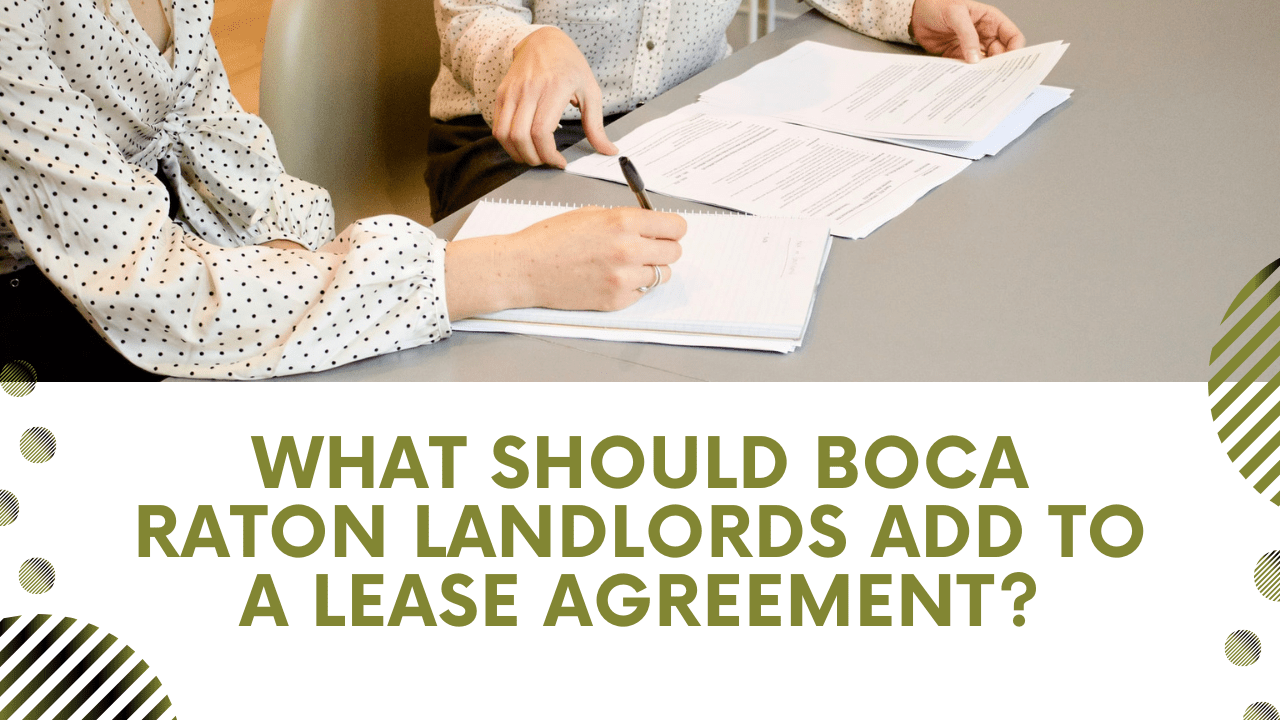A strong lease agreement is a landlord’s best tool when it comes to managing your tenant, your property, and your expectations. It’s important that you have a good lease, and it starts with a template that’s legally compliant and specific to Florida. While you can probably find a lot of sample leases on the internet, you don’t want to use one that doesn’t include all the information that’s absolutely critical when you’re renting out a Boca Raton property.
There’s a lot you need to include in a lease agreement, and we want to share some of the most important elements to a lease.
Contact and Identifying Information
A good lease will start with a description of the property, an address, and information about the landlord and the tenant. If you’re working with a
property management company, your property manager’s contact information should be in the lease as well. List what’s included in the property, such as appliances, and whether it’s a house, apartment, or condo. All adults living in the property who are 18 years of age or older must be listed on the lease, and you should also include the names and ages of any minors.
Rent Collection Policy
The lease agreement must include a rent collection policy which includes:
- How much the monthly rent is
- When rent is due
- How rent should be paid
Make sure you include information about any grace periods and when the rent is officially considered late. You’ll want to include late fees and other consequences, including the potential for eviction when rent isn’t paid on time.
Include the eviction timeline, starting with the Three Day Notice to Pay or Quit. When the rent collection policy is in writing in your lease agreement, tenants cannot claim they didn’t know there were late fees or they didn’t know how to pay.
Provide Landlord and Tenant Maintenance Responsibilities
As the landlord, you will need to maintain the home and ensure it remains habitable, however the tenant will have a role in general upkeep, and you’ll need specific responsibilities outlined in the lease agreement. You can instruct the tenants to change air filters, replace light bulbs, and even take care of general things like landscaping.
When the tenants are responsible for setting up utility accounts for the property, make sure your lease says so. You should also include a list of requirements that the tenants need to fulfill in order to get their full security deposit back. Provide instructions to tenants on how to report maintenance issues and repair needs.
Include any Legal Disclosures















